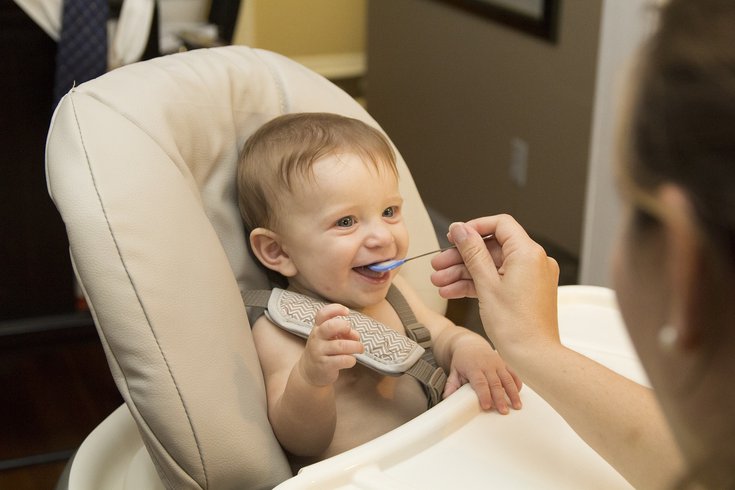
July 05, 2023
 YaleHealth/Pixabay
YaleHealth/Pixabay
Heavy metals like lead, arsenic and cadmium continue to be found in baby foods despite efforts from manufacturers and federal regulators to reduce the risk of contamination.
A "concerning" amount of heavy metals like lead, arsenic and cadmium can be found in store-bought baby foods, even as manufacturers and regulators work to reduce levels of metal contaminants, according to a study from Consumer Reports.
The latest testing from the independent organization found the overall risk of contamination and the health issues associated with exposure to neurotoxins has not changed much in the last five years. The report calls back to the organization's 2018 report, which found that 33 of 50 foods tested contained heavy metals.
As part of the new analysis, Consumer Reports tested 14 products, seven of which previously were tested in 2018. Of those seven, levels of heavy metals declined in three, but increased in three others. The products included fruits, vegetables, entrees and snacks like puffs and teething wafers from brands like Beech-Nut, Gerber, Earth's Best, Happy Baby Organics and Hot Kid.
Three of Gerber's baby food entrees — turkey rice dinner, sweet potato turkey with whole grains dinner and chicken rice dinner — had the highest levels of lead, arsenic and cadmium, with Consumer Reports urging parents and caregivers to serve no more than 1/2 serving per day to babies.
Happy Baby, which sells a line of snack puffs in flavors like apple and broccoli, banana and pumpkin and purple carrot and blueberry, contained moderately concerning amounts of heavy metals, with experts recommending children consume less than 1 1/2 servings per day.
Among the least concerning foods tested were Earth's Best organic strawberry snack bars, which Consumer Reports recommends children consume less than 4 1/2 servings each day. Gerber's pear-carrot-pea baby food and strawberry-apple-spinach baby teethers were among of the least concerning options, with researchers recommending that children consume less than 3 servings per day.
"Because heavy metals are so pervasive in foods — and because they tend to accumulate in the body — small exposures from multiple foods can add up," said Eric Boring, a chemist at Consumer Reports. "And feeding your child amounts close to the daily serving limits leaves little room for exposure to heavy metals from other foods. While concerning, these results are no reason to panic. An occasional serving of even one of the foods with the highest levels is generally ok. Just remember to mix up what your kids eat."
While small levels of exposure to heavy metals are expected throughout one's life, longterm intake of heavy metals can come with a host of health and developmental problems for young children, according to Consumer Reports. These risks include ADHD, autism, behavioral issues and a lower IQ.
The American Academy of Pediatrics has found that small levels of blood lead concentrations may impact future academic abilities, behavioral problems and attention issues in children. Standard testing for lead is recommended for children at 1 and 2 years old, but if the child's only exposure to heavy metals is through foods, no additional testing is recommended.
Though homemade baby food seemingly may provide some level of comfort from harmful neurotoxins found in foods from popular brands, a 2022 study found that homemade baby foods are just as likely as store-bought ones to contain detectable levels of lead, arsenic, cadmium and mercury. It's worth noting that the 10 least-contaminated products in homemade baby foods were bananas, grits, butternut squash, lamb, apples, pork, eggs, oranges and watermelon. The 10 most-contaminated foods were rice cakes, crisped rice cereal, rice puffs, brown rice, rice-based teething biscuits, white rice, raisins, non-rice teething crackers, granola bars with raisins and oat-ring cereal.
In January, the U.S. Food and Drug Administration revealed draft guidelines for food manufacturers on actions needed to reduce the amount of lead and other heavy metals in foods intended for babies and children. The guidance focuses on processed foods, such as baby foods in jars, pouches, tubs and boxes.
"To support child growth and development, we recommend parents and caregivers feed children a varied and nutrient-dense diet across and within the main food groups of vegetables, fruits, grains, dairy and protein foods," Susan Mayne, director of the FDA's Center for Food Safety and Applied Nutrition, said in January. "This approach helps your children get important nutrients and may reduce potential harmful effects from exposure to contaminants from foods that take up contaminants from the environment."
Everyone should consume a balanced diet with nutritious foods, wash rice before cooking and research ingredients in cosmetics to prevent or limit exposure to arsenic, according to Tap Score, a water-testing company and advocacy group. Adding other grains to a growing child's diet, like oats or quinoa, can provide nutrition without the risk of heavy metals.
Because rice and sweet potatoes are nutritious food options for babies and young children, parents are advised to keep them in children's diets. Incorporating a variety of nutritious foods can reduce the risk of heavy metal contamination and keep children safe from harmful neurotoxins.